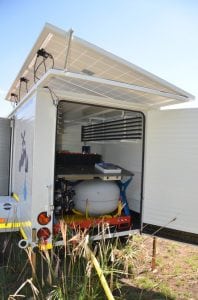
Agriculture
November 9, 2023
Aqua-Cura Solar
Read SolutionImplemented by
Aqua-cura
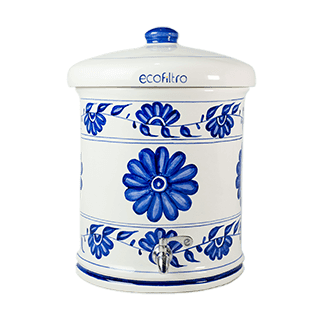
Updated on November 9, 2023
·Created on August 1, 2019
A ceramic pot filter made in Guatemala for rural family water treatment.
Ecofiltros are silver-enhanced ceramic filters that are designed, locally-made and distributed by Ecofiltro, a Guatemalan-based business that is committed to bringing clean water to rural communities in Guatemala. The product removes turbidity and 99.99% of harmful water-born pathogens.
Target Regions
Europe
Target SDGs
SDG 6: Clean Water and Sanitation
Market Suggested Retail Price
$156.01
Target Users (Target Impact Group)
Household
Distributors / Implementing Organizations
Create Good Foundation and the JS Hussey Foundation have helped expand Ecofiltro’s production capacity to help reach more families in rural Guatemala. The filters are directly distributed by Ecofiltro and through a network of local distributors in both rural areas and urban areas.
Competitive Landscape
Direct competitors include Purifaaya, CeraMaji, Arcifiltro, Tirtacupumanik (TCM), Silver Filter, and CT Filtron.
Manufacturing/Building Method
Ecofiltros are designed and manufactured from locally sourced materials in Guatemala in the Ecofiltro factory located in Aldea San Lorenzo El Cubo Ciudad Vieja, Sacatepéquez. The new facility, built in 2012, has the capacity of producing 20,000 filters per month.
Intellectural Property Type
Trademarked
User Provision Model
Ecofiltros are available in Guatemala at Ecofiltro and through a network of local distributors in rural and urban areas. They can be purchased at CEMACO, Walmart, Maxi Despensa, EPA, Novex, Oakland Mall, Miraflores, eskala, Pradera Concepción, Naranjo Mall, or ordered online to other near-by countries.
Distributions to Date Status
Over 500,000 filters have been distributed throughout Guatemala. From 2014 to 2018, 27,980 filters were given to 4,642 schools, reaching 839,400 children in the Ecofiltro School program.
Design Specifications
Ecofiltros are composed of a ceramic filtering unit (made of clay, saw dust and colloidal silver) that hangs inside a container equipped with a top and a spigot for the filtered water. In the filtering unit the fired clay produces microscopic pores that trap turbidity and bacteria. The saw dust converts to activated carbon which helps eliminate color, smell and bad taste. The colloidal silver eliminates remaining bacteria. The outside container can be made of different materials (enamelware, ceramic, clay, plastic or stainless steel) and comes in different colors/designs. Most filters have a capacity of 20 L to serve a family of 5-6 people, with a flow rate of 1-2 L/hour. Smaller versions carry 6 L and serve 1-2 cups of water/hour or 500mL. For optimal performance, Ecofiltros should be filled with water and kept to the top.
Technical Support
Rural and urban distributers are trained by Ecofiltro to be filter advisers and provide post-sales service. For technical support users should contact their direct distributer. Interview with representative
Replacement Components
The filtering unit must be replaced every two years. It can be bought separately from Ecofiltros.
Lifecycle
The ceramic filter unit should be replaced every two years. A sticker is included in each box for the user to document the installation date + 2 years for anticipated replacement. The used filter unit can then be used as a flower pot after its two years of use. Interview with representative.
Manufacturer Specified Performance Parameters
Ecofiltros states its goals as both related to improving human health through the sale and distribution of water filters, and to reducing the human carbon footprint by reducing energy demand and water use.
Vetted Performance Status
Filters that have been in use from 0 to 24 months have been tested by 2 different local labs with international certification, Soluciones Analíticas and Contro-Lab for bacteria reduction, and by Ambitek Services for removal of tubidity, disolved solids, and residual chlorine. Interview with representative.
Safety
This product cannot be used to filter sea water, water that has been chlorinated, or water with too much sediment as the pores will get clogged. Muddy water should be left for to disaggregate before pouring into the filter. Alternatively, water with heavy sediment must be filtered through a cloth before entering the filter.
Complementary Technical Systems
No complementary technical systems are required. If desired, wooden bases can be purchased locally.
Academic Research and References
Roegner, A., Ochaeta, G., Bocel, E. et al., 2017, Employing CBPR to investigate function, utility, and longevity of household filters to improve potable water quality for indigenous peoples at Lake Atitlán, Guatemala: a pilot study with San Pedro de La Laguna, Energy, Ecology and Environment 2(2), pp. 95-113.
Figueredo, A. and Chowdhury, R., 2019, Conceptualization of community-based entrepreneurship: a case study of Ecofiltro in Guatemala, European Association of Work and Organizational Psychology in Practice, 2 (11), pp. 77-101.
Salvinelli, C., Elmore, A. C., García-Hernandez B. R. and Drake, K. D., 2017, Ceramic pot filters lifetime study in coastal Guatemala, Journal of Water and Health, 15.1, pp. 145-154.
Compliance with regulations
Ecofilters are in compliance with COGUANOR Guatemalan regulation and meet regulations in other countries where they are distributed in order to be authorized to be sold in the market. Interview with representative.
Evaluation methods
This product is tested for removal of E. coli, coliform and aerobic bacteria in two certified third-party laboratories in Guatemala and also tested for removal of tubidity, disolved solids and residual chlorine by Ambitek Services. Interview with representative.
Other Information
Ecofiltro has received numerous awards for the product’s effectiveness and for the company’s delivery model in the field.

Agriculture
November 9, 2023
Implemented by
Aqua-cura
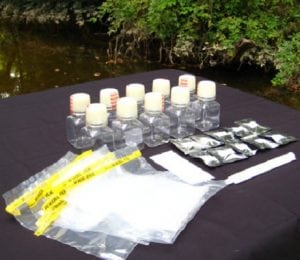
Agriculture
November 9, 2023
Implemented by
Aquagenx
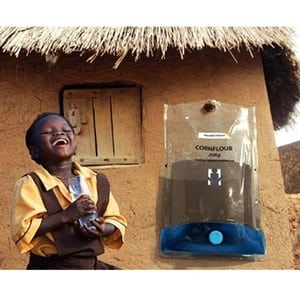
Agriculture
November 9, 2023
Implemented by
Jung Uk Park, Myeong Hoon Lee, and Dae Youl Lee
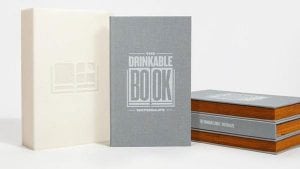
Agriculture
November 9, 2023
Implemented by
Folia Water
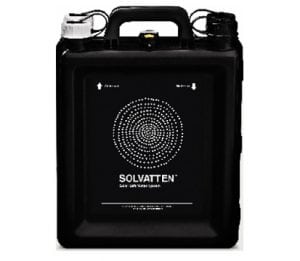
Agriculture
November 10, 2023
Implemented by
3M
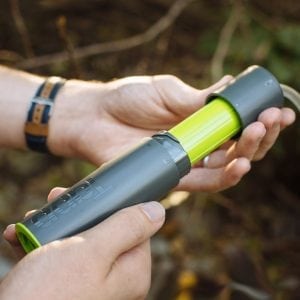
Agriculture
November 9, 2023
Implemented by
Tapp Global Design Inc

Agriculture
November 9, 2023
Implemented by
DHAN Foundation
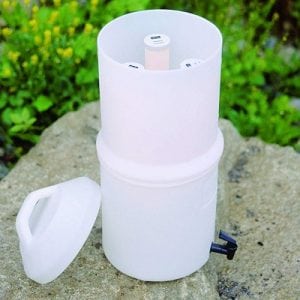
Agriculture
November 9, 2023
Implemented by
Katadyn Group
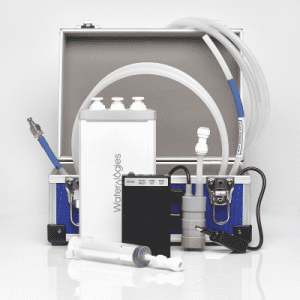
Agriculture
November 9, 2023
Implemented by
Waterologies

Agriculture
November 9, 2023
Implemented by
Water and Environmental Engineering, University of Bristol
Have thoughts on how we can improve?
Give Us Feedback